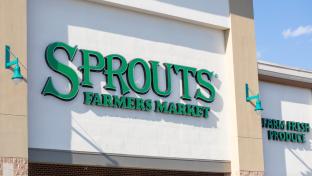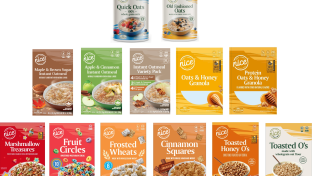Club Store Report: Close-up on the clubs

In terms of size, one might think of the three largest North American club store chains – Costco Wholesale Corp., Sams Club and BJs Wholesale Club Inc. – as an elephant, a rhino and a meerkat, respectively. With 622 locations (533 of them in the United States and Canada) and fiscal 2012 sales of $97 billion, Costco the elephant somewhat dwarfs Sams Club the rhino, which ended its fiscal 2012 with 611 locations in the United States and Puerto Rico and net sales of $53.8 billion. And both Costco and Sams Club significantly dwarf BJs the meerkat, which operates 190 locations in 15 eastern/southeastern states and realized an estimated $11 billion in sales for the fiscal year ending Jan. 31, 2012 (according to Fortune magazine).
But size is not the only differentiator, of course, when it comes to the three chains. The companies also differ from one another, for example, in their approach to private label.
The elephant
Issaquah, Wash.-based Costco relies on one private brand – Kirkland Signature – to speak to shoppers across the store. Some of the latest items to be added under the brand, the retailer notes in its 2012 annual report, are chocolate chips, organic canned tomato products, honey, a variety of wine and spirits offerings, and new apparel items for both men and women.
Moreover, Costco recently partnered with Green Mountain Coffee Roasters Inc. (GMCR), a Waterbury, Vt.-based supplier of specialty coffee and coffee makers, to offer Kirkland Signature brand K-Cup packs for the Keurig single-cup brewing system. Under the partnership, GMCR will be the exclusive manufacturer of the two exclusive blends: Breakfast Blend (a smooth, balanced light roast) and Pacific Bold (a robust, extra-bold dark roast).
"Costcos buyers constantly work to bring new Kirkland Signature products to market," Chairman Jeff Brotman and President and CEO Craig Jelinek noted in a shareholder letter included in the 2012 annual report. "Our Kirkland Signature private label items must meet or exceed the quality of the leading national brands and must offer our members the greatest value for their dollar."
And industry observers seem to agree that Costco knows how to play the store brand game well.
"They have an incredible commitment to what the Kirkland Signature brand is supposed to stand for," says Jim Wisner, president of Libertyville, Ill.-based Wisner Marketing Group. "And pretty much without fail they deliver on that consistently, where you are getting superior quality at a better-than-market-competitive price."
Paula Rosenblum, managing partner with Retail Systems Research, Miami, calls Costco "almost iconic" in how it leverages its store brand.
"For most categories, the Kirkland brand is considered a very high-quality product – from trash bags to frozen vegetables, it matches up to national brands," she says.
Costco often avoids a direct comparison, price-wise, to national brands by differentiating its own products from them, notes Bell Ball, senior vice president of Dechert-Hampe, Northbrook, Ill. And in the liquor category, the Kirkland Signature name often graces premium offerings.
"For example, they still carry Patron Silver as their premium resposado, since that is such an iconic offering. But they discontinued Don Julio anejo over a year ago in favor of a Kirkland alternative – and its not cheap!" he says. "They also experimented with cobranding on their premium liquors."
Costco has dabbled in cobranding outside the liquor space as well – for items ranging from soup (e.g., combining the Kirkland Signature with Campbells StockPot brand) to cosmetics (e.g., combining the Kirkland Signature and Borghese brands). Carol Spieckerman, president of the retail consultancy newmarketbuilders, believes the retailer "has set the standard for premium private branding" – both inside and outside the club store channel.
"That a luxury cosmetics brand such as Borghese would cobrand with Kirkland rather than remain as a standalone lure to high-end shoppers speaks volumes about the pull of Costcos power brand," she says. "The Borghese program also defies identity. Is it a private brand, a national brand, or both?"
Under the Kirkland Signature label alone, Costco recently has been stepping up product development in categories that fall outside traditional store brand territory where club stores are concerned, most notably clothing, Wisner says.
Ball points out that the retailers own-brand menswear now goes beyond underwear and jeans.
"Cashmere jackets, designer suits and other quality goods hit the stores on what appears to be an in and out basis," he says. "The quality is high, and the values [are] exceptional."
All in all, Costco has created a great image for the Kirkland Signature brand – one thats not solely a value proposition, adds Jim Hertel, managing partner with Willard Bishop, a Barrington, Ill.-based food retail consultant.
"They have staked a claim on very best quality," he says. "Thats a high bar to clear, but they do it."
The rhino
Sams Club, owned by Bentonville, Ark.-based Walmart, took its private brands program in a new direction toward the end of 2011, when it debuted three brands: Artisan Fresh, Daily Chef and Simply Right. At the time, the retailer said the new brands covered premium-quality products and gave a fresh look to items previously falling under Sams Clubs Members Mark brand in selective categories.
The Daily Chef brand offers "a wide array of delicious and affordable everyday foods" such as dried fruit, pasta, frozen vegetables and chicken, Sams Club noted, while the Artisan Fresh brand covers a selection of "great-tasting, skillfully prepared foods" such as pies and other bakery goods, fresh breads and marinated meats. The Simply Right brand, meanwhile, provides healthful, gentle personal-care and wellness products for the entire family.
Since their debut, Sams Club has been actively promoting the brands via Facebook and Twitter and adding to its offerings. The retailer also has been leveraging its Simply Right health and wellness brand for charity. In October 2011, for example, Sams Club pledged $20,000 of Simply Right pet food, supplies and Sams Club gift cards – in honor of Adopt-a-Dog-Month – to four U.S. animal shelters in need of support following recent natural disasters. And in October 2012, the retailer and its Simply Right brand announced a donation of $500,000 to Vitamin Angels, a non-profit organization dedicated to increasing availability, access and use of micronutrients among at-risk populations in need.
"Sams has demonstrated a lot of integrity with its private brand development and understands the balance between national brands and private brands," Spieckerman says. "Sams has steadfastly refused to set arbitrary private brand penetration goals and instead, thoughtfully assesses when and where [the brands] make sense."
Recent upgrades Sams Club has made to its locations, including "showy technology and produce sections," also frame the retailers private brands well, she adds.
Wisner believes that Sams Club has "gotten a lot better" in overall operations and private label program management in recent years, noting that the retailer has even ventured into new categories for store brands such as liquor.
"To be honest, I think they were always pretty good," he says. "But theyve raised their game in terms of what they are doing. I think they understand what Costco does, what that provides as part of the shopping trip for the consumer, and theyve begun to dial it up."
But others see room for improvement.
"I believe Sams Club lags behind in this area," Rosenblum offers. "In fact, if you look at their website, you can see them highlighting national brands at a value price. In general, the Walmart properties have lagged in their ability to generate any kind of pop around their store brands. They seem to have had a harder time understanding the step-wise approach to establishing value and then gradually substituting out national brands."
Ball agrees, contending that Sams Club is simply a warehouse extension of Walmarts "name brands at lower prices" strategy.
"That is the core strategy: We will give you the same stuff you recognize and buy in other stores at a lower price," he says.
The meerkat
Westborough, Mass.-based BJs not only is the smallest of the big three in terms of locations and sales revenue, but also operates smaller stores. The average size of a Costco Wholesale store, according to the retailer, is 143,000 square feet, while Hoovers.com lists 134,000 square feet as the average size for a Sams Club store. But BJs Wholesale Club stores average just 113,000 square feet, reports a Feb. 4, 2011, Boston Business Journal article.
In summer 2011, after some financial woes and a string of store closings, BJs announced its entry into an agreement to be acquired by affiliates of Leonard Green & Partners L.P., Los Angeles, and funds advised by CVC Capital Partners, New York. The acquisition was finalized in fall 2011, taking the regional retailer private.
Despite its relatively small size, BJs boasts a rather well-developed private label program thats anchored by its Berkley & Jensen brand and filled out by niche brands such as Earths Pride Organics, Rozzano (Italian fare) and Wellsley Farms (upscale fare).
"What I like about BJs is they really pursue a very diversified private label strategy, whether its hard goods, clothing or food," says Mark Keschl, national director for Colliers Internationals Retail Services Group (working in the companys Fort Lauderdale, Fla., office). "Theyve diversified the offering and really tailored it to the nature of that product."
Among the newest private brand offerings from BJs is a cake made by Buddy Valastro, star of the TLC reality show "Cake Boss." Called "Da Bomb," the cake features chocolate layers and caramel icing and is exclusive to BJs, the retailer says.
Also new is the generation earth line of responsibly sourced bathroom tissue, paper towels and other paper products. The products are made from the pulp of new trees, which absorb harmful carbon in the environment at a faster rate than old trees, BJs explains. The products bear the "we are tree positive" seal – for every tree used, two are planted in its place.
Still, BJs private brands lack the clout of the Kirkland Signature brand, contends Howard Davidowitz, chairman of Davidowitz & Associates Inc., a national retail consulting and investment banking firm headquartered in New York. Going forward, he believes BJs should take advantage of its smaller size to enter exclusive partnerships for product development – a feat that would be difficult for Costco or Sams Club to pull off because they would need such a large volume of product. For example, the retailer could partner with Coach on the wholesale side to create cobranded handbags and accessories.
Keschl also notes that BJs offers a wider assortment and smaller pack sizes than Costco and Sams Club – two things that potentially hold appeal for the urban dweller and could help spur BJs growth in the years to come.
"And BJs has a distinct advantage in that their building size is smaller than both Costco and Sams Club so they can be a little nimbler in terms of where they go," he says.

